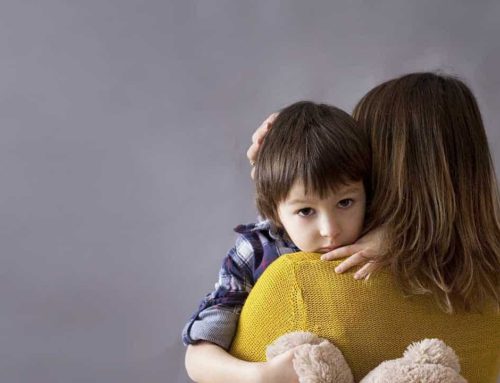Sleep is something that we all need to survive and thrive – and yet many of us do not get enough of it. If our children are not sleeping well or enough, chances are the adults in their life are also sleep deprived.
Sleep habits begin in early childhood. As adults, the recommended amount is around eight hours and for school-age children it is approximately nine to eleven hours. Insomnia is when someone is getting insufficient or non-restorative sleep. This means not getting enough good sleep to get you through the day, so that you may fall asleep at unusual or inappropriate times. If children suffer from insomnia and do not get sufficient sleep their mood can be impacted, which will consequently affect their functioning during the day. Here are some pointers to keep in mind when focusing on helping your child get sufficient, restful and restorative sleep.
- Set up a consistent and relaxing bedtime routine, and do everything in the same way and in the same order every night. The whole process should last between 20 and 30 minutes. This should include a regular hygiene routine, such as washing up, having a full bath or shower, and brushing teeth, etc. Make sure that there is some fun in it – laughter and giggles. Laughter is a good way to let go of any stress that may have been built up during the day and also a way to firm up the connection, the bond between you and your child, thus enabling them to face the night and the separation that occurs with sleep.
- The bedtime routine can also include story time, either reading to your child or having your child read to you. You might also include some time to put the day to rest. This day is now ending. You can talk about all the good things that happened that day, and some of the not-so-good things. The main point here is that no more can be done about anything because this day is done. If there’s something leftover from the day that needs to be addressed, that goes on the list for tomorrow. Now it’s time to let that go – and “tomorrow is another day.” A bit of talk listing all the people who love your child is also a way to affirm the feeling of safety and connection the child has – speak in concrete terms about the blanket of love that surrounds the child.
- If your child is expressing a lot of worries, assure him/her that night time is not the time to fix problems. It is often very helpful to put those worries in a worry box. This concrete tool is a great way to help children contain worries. The worries still exist – they’ve been put in a box for safe keeping and we can get back to them in the morning, or in a few days, where we can do some problem solving much more effectively. Night time before bed, when we are tired and ready for sleep, is not a good time to figure things out. Learning when to solve problems is part of developing a good habit for sleep and developing sleep confidence.
- Many children try to stall before bed. This is normal behaviour. Going to sleep is frightening for many children – going to sleep means losing consciousness, which means being vulnerable and alone. Let your child know that they are loved and they are safe. You may feel safe but your child may not. Let them borrow your sense of safety. Let your child know why you feel so safe. Talk about sleep in a positive way – sleep is your gift to yourself so that you have a good day tomorrow. “Be kind to yourself and give yourself the gift of sleep.”
- Make sure you are following the standard guidelines to ensure easy access to sleep. Remember – sleep is not something you make happen, it is something that comes to you. If we are in the right receptive mode and welcome sleep, then it comes. If we try too hard to make it happen, then we wake ourselves up. This is opposite of what most children are doing all day, which is trying hard to do all the things they are doing and learning.
More tips for parents
- Make sure your child is comfortable, with the right clothing and room temperature – not too hot, not too cold.
- Avoid big meals and snacks high in sugar before bedtime.
- Avoid all stimulating activities after dinner, including screen time, especially exciting games or TV shows.
- Warn your child before it’s time to get ready for bed, give them some advance warning about the shift in activity
Alter, Stuckler & Associates are a team of registered psychologists and a social worker that provide compassionate psychological care. We have provided service to individuals, couples and families from Thornhill, Markham, Vaughan and throughout the Greater Toronto Area for more than 30 years. Have a question for our team? Contact us today.



